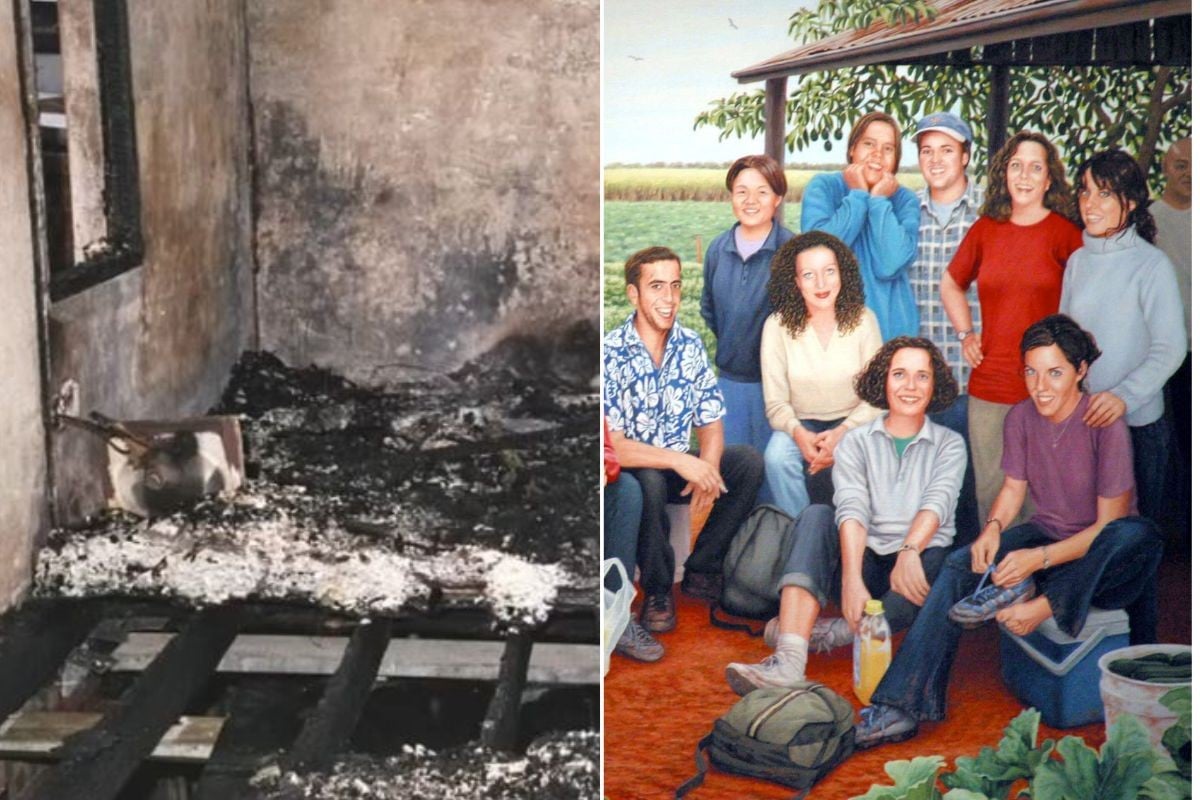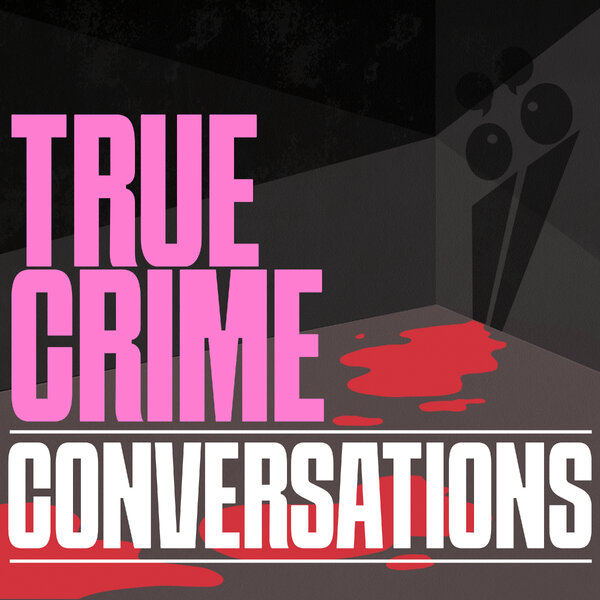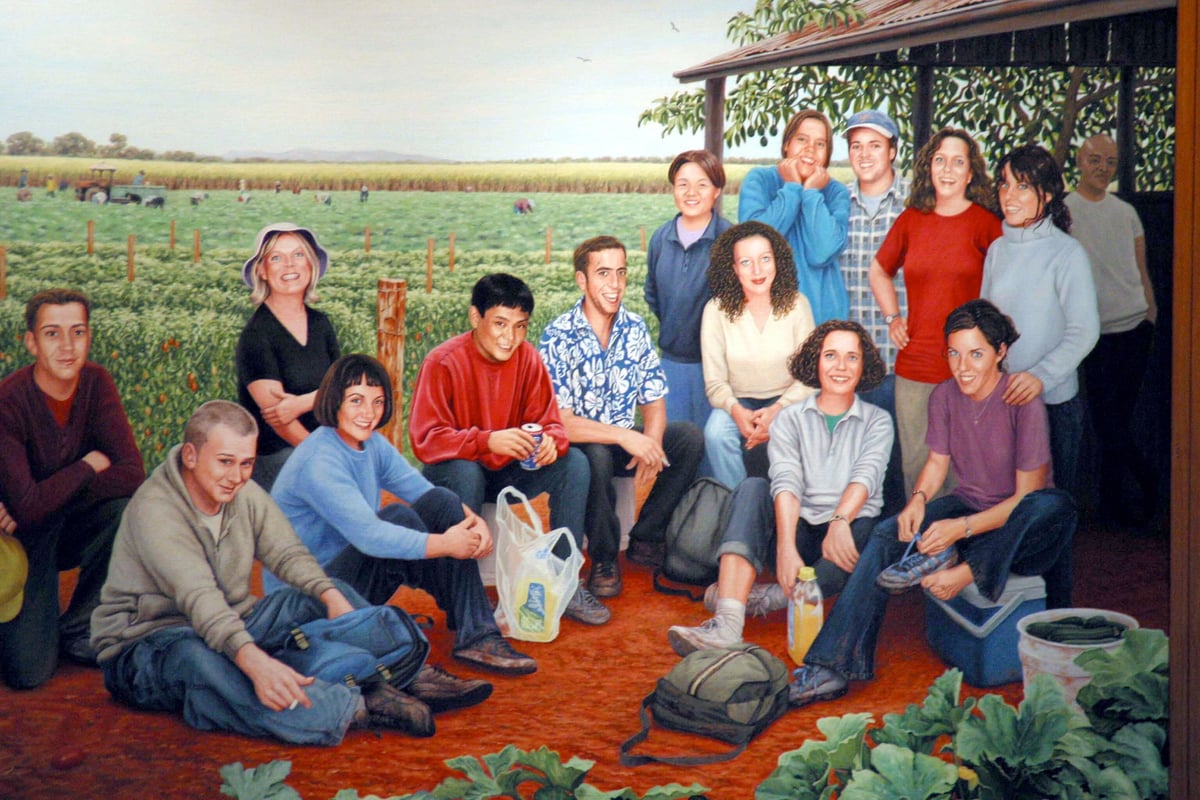
It took 20 years for Jessica Wiegand to feel comfortable talking about what she experienced.
About the moment she sat down, alone, on the floor of the Childers Palace Backpackers Hostel in rural Queensland as a 19-year-old British backpacker, surrounded by darkness and thick black smoke and thought, "Ok, this is it".
As the realisation she was going to die hit, she found herself in a moment of calm.
"Everything just stopped. I stopped struggling. I stopped trying," she told Childers the podcast twenty years later.
Watch: The host of Childers describes the accounts he heard while talking to survivors. Post continues below.
She'd woken just after midnight on June 23rd, 2000, to what sounded like fireworks. She knew instinctively she didn't have much time — that there wasn't much oxygen.
She also knew she didn't really know her way around the building. She'd only been staying there three days.
As the fire took hold, Jessica stopped feeling fearful. Thinking back, she knows she experienced something so close to death she "nearly stepped over that threshold".






























































































